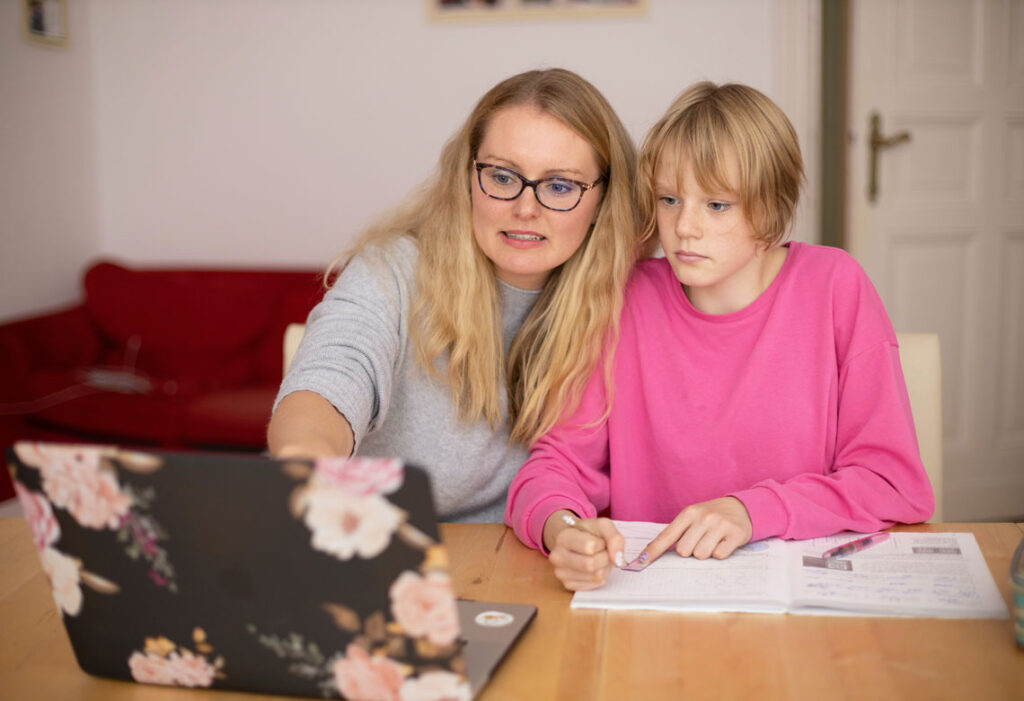
The nationwide survey, conducted by Vodafone Ireland, found that many of us are not as comfortable online as we would like to be, with 66% admitting they are concerned about their online safety.
- 69% of children use connected devices daily, and just under two-thirds (62%) are online for 1 to 3 hours per day.
- 57% of parents frequently restrict their children’s online access, such as turning off internet connections or restricting websites.
- 8 in 10 state they are anxious about their child meeting strangers online and 66% are worried about exposure to explicit content.
- Almost half (45%) of the Irish public have fallen victim to a virus on their device in the past year, with a further 36% experiencing two to three virus attacks in the last 12 months.
- Research study conducted for the launch of Vodafone Secure Net, a new digital protection product available in-and-out of the home with parental tools to help manage time spent online, safely.
To mark the launch of Secure Net, a new digital protection product, Vodafone Ireland has conducted a national study into the Irish public’s concerns and behaviours around online safety and security.
With children and young people increasingly living life online, the onus on parents and guardians to be informed and empowered is a constant concern. According to the research of 750 parents of children aged 4 – 14, 69% of children use connected devices daily, and just under two-thirds (62%) are online for 1 to 3 hours per day.
Secure Net features parental tools, such as content filtering, pause and focus time to help parents manage children’s time on devices. The product seamlessly connects and works with all devices and operating systems on Vodafone’s mobile and broadband network – protecting people in-and-out of the home.
The research found that nearly nine out of ten (88%) Irish parents worry about the content their child could be seeing online and 47% are troubled by a lack of control over their internet use. The reasons for parents’ concerns are varied,* with 80% concerned about their children being exposed to strangers online, 66% fearful of explicit content, and just over half (52%) worried that their children might unwittingly fall victim to a cyber-attack or online virus. The study also reveals that over half (57%) of Irish parents frequently restrict online access through parental controls or by manually turning on and off internet connections. A further 53% of parents feel that it is it hard for their child to focus on schoolwork when they have access to other online platforms.
To help alleviate parents’ concerns, Secure Net allows parents to manage the content on their children’s devices through the new app and/or online portal. Parents can select appropriate content categories to filter access based on the child’s age, limit their time online, pause or schedule access and restrict some content, like social media, during homework or focus time and switch off access later, when it is time for bed.
Digital protection is becoming increasingly important as the frequency of cyber-attacks continues to rise. According to this research, almost half (45%) of Irish people fell victim to an online virus in the past year, while a further 36% experienced two to three viruses, including spyware, trojans and botnet malware in the last 12 months. Of those who experienced online attacks, 43% were hacked, 22% had their data stolen and 12% suffered financial loss. Secure Net offers the unique proposition of digital protection by scanning, detecting, and removing malicious content on connected devices, both inside and outside of the home.
Claire Reynolds, Head of Consumer Marketing Segments, Vodafone Ireland said: “At Vodafone, we are committed to making life easier for our customers by giving them access to the latest technology and innovations to protect them and their family online. Our research shows many parents and guardians are worried and don’t feel informed when it comes to protecting their children online. We are delighted to provide technology that allows parents more control over their children’s activity and accessibility with features such as focus time, content filtering, pause and bedtime.
The unique in-and-out of home protection offering with Secure Net gives customers more confidence that time online is spent safely and that children and loved ones are not being exposed to unsuitable content, phishing scams and other attacks on their devices.
For those feeling overwhelmed and looking for more information and guidance The Digital Ready Hub, developed by ISPCC and the Vodafone Ireland Foundation, is an always- on resource which provides articles, downloadable tips and guides and videos on topics including digital resilience and empathy; digital platforms and devices; online risks and cyberbullying, security and privacy.’’
ISPCC Childline Chief Executive, John Church added: “Technology and the internet are almost fully embedded in our children’s lives today. As a result, they have few opportunities to switch off completely. It’s important that children and young people, with the support of their parents and caregivers, talk about the best way to ensure that they are safe online. This interaction could involve conversations about managing the type of content they engage with and about setting time limits for internet access.”
Available as an add-on to both new and existing customers from 18th July 2022, Secure Net is available both inside and outside of the home.
- Secure Net at Home: At €2.99 per month, Vodafone customers can avail of Secure Net protection for fixed broadband lines. It includes parental controls** and protects all devices connected to internet via the Vodafone Home Wi-Fi or directly connected by cable to the modem.
- Secure Net On the Go: At €0.99 per month per mobile line, Secure Net protects the device that is connected to the Vodafone mobile network.
For more information, visit: https://n.vodafone.ie/protecting-you/secure-net.html
For more information on keeping children safe online, go to ISPCC’s Digital Ready Hub.


